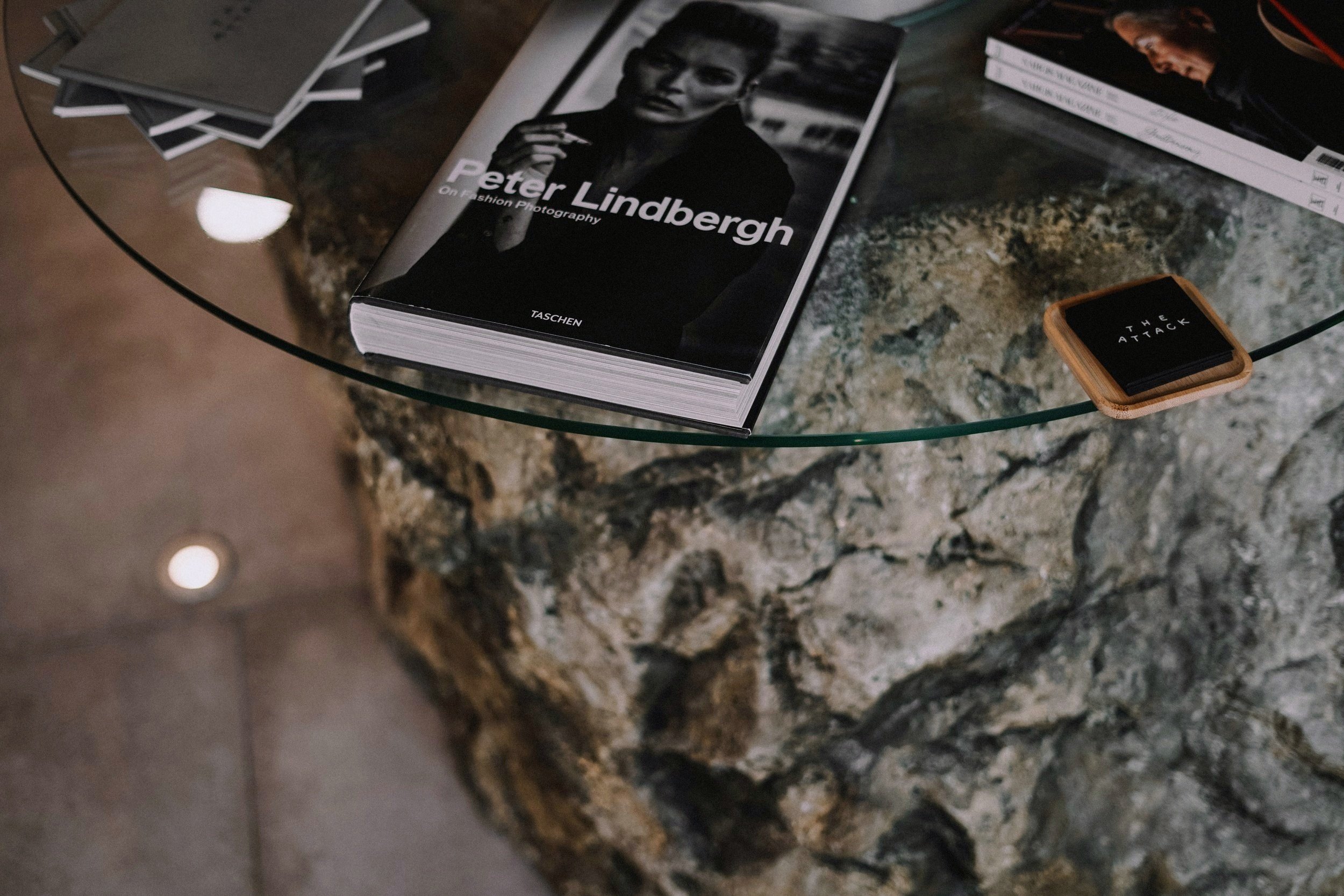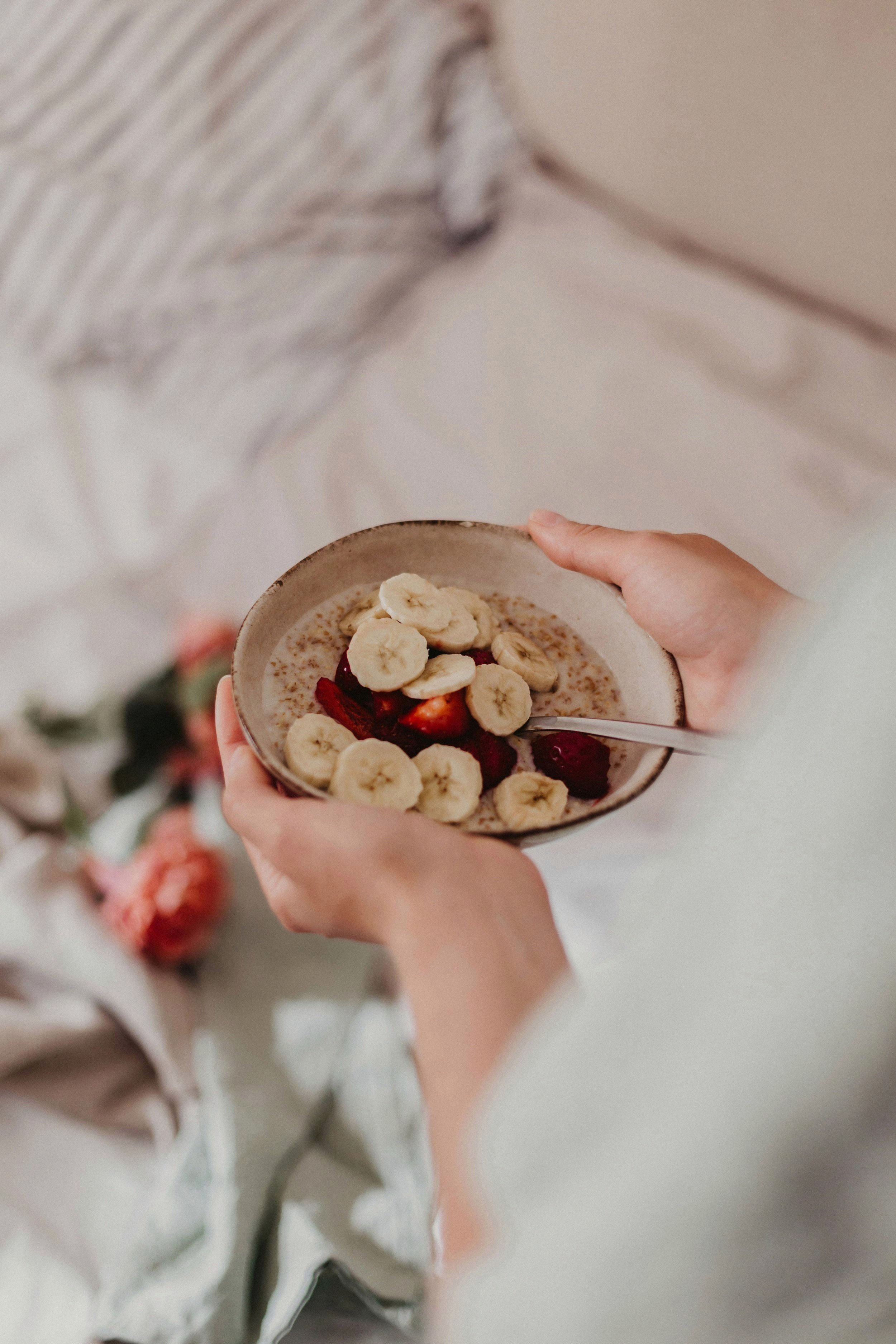I’m Turning 30 Years Old—As a Therapist, Here’s How I Reframe Societal Timelines, Self Image, and Belonging
March 13th, 2024 — Written for The Reinvention Series by Charlotte Jade Askew
Photo by Nataliya Melnychuk
How often do you think about aging? Is it once a year when your birthday rolls around? Every so often, when someone comments on someone else's age, or perhaps (considerately or rather inconsiderately) enquires about yours? Depending on what you’ve experienced, there is a full range of potential beliefs and feelings you may have about growing older and what it means (if anything) to turn thirty.
Maybe it’s one of the first things that comes to mind when you have some spare time or space, and you get to wondering about your life. Maybe you look at your life and think first of the years that have been and the years that you have left, and then you start to do that thing we all do at one time or another, where you hold your life up against the rest of the world and mark it against a checklist you can’t see but you can feel like a sticky film on your skin.
I turn thirty this month, which is to say that I’ve reached the precipice of chronological time, after which society seems to have agreed there exists no point at which you are young again.
This isn’t a new phenomenon.
I think it’s important to know that, to notice it, before we say anything else.
Photo by Lala Azizli
My friends have been talking about how “old” we are, or more accurately, how old we feel we’re getting based on that number that ticks over each year, at least since we were twenty-five. If not earlier. It’s more pronounced now, and there are new notes of pain in their voices I never noticed before, but it’s been here a while—this fixation with the years we have lived.
The rather vital song, Anti Aging, by Ellee Duke captures the flavour of most of what’s important about what I’m trying to say here.
Before we dive in further, here is exactly what we’re covering in this article:
*you can click below to navigate directly to the section you wish to read, or continue with the story as you were
1. Chronological age (fascination with the number)
2. What lives in a year? (a collection of weeks, days, moments. a movement of the seasons. the orbit of our planet.)
3. The comparison trap: apples to oranges (denying our individuality)
4. Fitting in, belonging in community, and dancing with our physiology (being fed, sheltered, protected)
5. Evolutionary yearnings (we need one another from an emotional, felt-sense perspective)
6. The ultimate awakening (why turning 30 years old feels momentous to me…and it’s likely not what you think)
7. Self imagine > societal timelines (for me, age is more about self-image than anything else)
8. Releasing the energetic gridlock of shoulds (decreasing the pressure and rewriting the rules—without denying our longing)
9. Waking up the reframe (we get to decide how true our stories really are)
10. Authoring your life trajectory (you aren’t behind or ahead on the invisible timeline)
11. The resources we deliver at Casey Jacque (essays on whole body health, creative career building, creative direction, intentional travel, sustainable living, love and relating and more)
Photo by Michael Tucker
Chronological age:
fascination with the number
We have the propensity to become infatuated with age in terms of the year-by-year trajectory that we have created and subscribed to as a collective. Sometimes, I wonder if this is because we have the privilege of too much time. From one angle, I’m certain we have been taught, in every conscious and subconscious interaction within the production of humanity, to fret over our youth (or lack thereof).
What interests me most psychologically—and what I think is worth remembering—is the very literal fact that we are aging in every moment. You are now a minute or so older than when you started reading this article. And now, still, a few seconds more.
Yet, it is our birthdays that seem to cause the most anxiety. The fact that we are another year older (despite us having been moving towards it every day) seems to be the moment that counts for many of us.
Photo by Oscar Ramirez
But what lives in a year anyway?
a collection of weeks, days, minutes, moments. A movement of the seasons. The orbit of our planet.
Sometimes, I wonder if we have stopped noticing what is real in favour of what we think should be.
When I speak with my clients and friends, I’ve noticed that birthdays (and age itself) seem more about what hasn’t been done than what has. We choose to see them as a marker of what’s missing. Where we measure up or don’t when it comes to others our age—
What they’ve done.
Where they’ve been.
What they have.
Photo by Alicia Petresc
We enjoy having the physicality of a birthday—the tangible notch on our metaphorical belts. We like to look at ourselves this way. We might not enjoy it, but we find some sense of purpose or normalcy in this (highly arbitrary) comparison with others.
They owned a home by 30.
She’s married with two kids.
They’ve been promoted.
Other people’s lives. Other people’s choices. Other people who have never once had the precise set of circumstances play out in their lives that you have. And yet, we imprint them onto ourselves anyway.
Photo by Ellie Ellien
The comparison trap (apples to oranges):
denying our very individuality
The comparison is flawed from the outset. The only thing we can necessarily claim in common is the number of years we have lived on this Earth, and even then, it’s still very rarely exact in that even if we’re born in the same year, there is a matter of days, hours, or minutes difference.
We so desperately want to see ourselves in others. We long for similarity. To be known and seen in a way that feels somehow valid or right. We try to anchor ourselves in the larger collective. Mapping out a trajectory that has the greatest likelihood of being approved of. And in doing so, we deny our very individuality.
Photo by Lala Azizli
We take our life and hold it up against somebody else’s and decide how valuable we are based on the places that do and don’t match up.
I believe we’ve been taught to do that. Society as a collective has gathered an understanding of what “should” be when it comes to a life—and it differs based on so many other demographics and cultural influences. Still, the message is the same: fit in.
And so, we rush, and often, we settle for what’s easy or right there in front of us because we believe, on some level, we’re late, and if we’re late, we’re doing something wrong.
Photo by Colton Jones
Fitting in:
dancing with our physiology
There’s a very logical and biological reason for this intense desire to belong to the collective. Our ancestors would not have survived without forming a group and staying connected. There would have been consequences to not belonging to a tribe. Humans are physiologically engineered to exist in a community; our chances of survival were far higher that way. We pooled resources and talents, and we were stronger because of it. Being a part of the group meant being fed, sheltered, and protected.
Photo by Lala Azizli
And whilst those needs are (in most cases) far easier to meet today, there is still an evolutionary yearning inside us to be a part of the crowd. The subconscious, physiological response in our bodies when we feel as though we’re left behind or not fitting in is one of terror. A dormant part of us perceives it as life-threatening.
There is another side of belonging that isn’t as easily explained, another facet of this yearning that runs deeper than our physiology. Humans love to connect and connect to love. We are hardwired to do so for survival, but I also feel deep within myself the knowing that it’s more than this too. That we stay together because we do, in fact, need each other for a kind of survival far beyond the physical means a group provides. We need each other from a more emotional, felt-sense perspective. And perhaps part of that also plays into our obsession with being seen to be reaching milestones within a community.
Photo by Ellie Ellien
the ultimate awakening:
why turning 30 years old feels momentous for me (it’s not what you think)
To belong to yourself and whichever collective you choose whilst also being able to choose yourself and your own timelines is the ultimate awakening.
Thirty feels momentous for me, but perhaps not in the way you might imagine—I'm not afraid of infertility or my very recent singleness—it is more of a reckoning in terms of who I am, here, at thirty. A poignant reflection on this iteration of myself. This expression of my soul, in this way, whilst also beginning to observe the next evolution of me. Thirty feels like a time to ask myself some important questions:
What have I always wanted that I haven’t done?
What am I afraid of that is getting in the way?
Am I embodying the most inspired version of myself?
How do I allow myself to grow each day?
Who am I, really?
Photo by Joey Lee
Self imagine > societal timelines:
for me, age is more about self-image than anything else.
The problem is not the number but how we choose to think about the number and all the associations we assemble alongside it.
Birthdays, for me, have become a litmus test for how I’m feeling about myself:
How solid is my self-concept?
How much do I truly love myself?
Where in my life am I placing other people’s expectations over and above my own?
Because, ultimately, there is no timeline. No blackboard in the sky with a list you need to chalk off. What’s important is what feels intuitive for you—self-guided insight from a place of self-love rather than pressure. When we’re clouded by the ideas of what we think we should be doing, we lose sight of the actions most aligned with the most authentic expression of our soul.
Photo by Evgeniya Borovska
Releasing the energetic gridlock of shoulds:
decreasing the pressure (and rewriting the rules) without denying our longing
I have found that when we obsess over the ‘shoulds,’ we often get in the way of creating the things we desperately yearn for in our lives.
Fretting over the things we don’t have—that marriage or that house or the success, etc.—inadvertently holds us steady in the space of missing out. This doesn’t mean we shouldn’t want for anything. Rather, it is a process of setting our intentions for the things we want and releasing them to an innate trust that they will come to fruition.
When we should ourselves, we are usually placing pressure on ourselves based on someone else’s ideas or opinions, whether that’s a person, group of people, or society as a whole. Those perceived ‘rules’ may actually have very little to do with the way you’d like to express yourself in the world.
Photo by Rafael Rodrigues
Waking up the reframe:
we get to decide how true our stories really are.
See if you can consciously reframe the ‘shoulds’ when they creep into your brain.
1. First, acknowledge the should for what it is. If you know where or whom it came from, state that to yourself, e.g., “Oh, that’s my Mum talking” or “That’s what society tells me I should have by thirty.”
2. Next, decide how true that is.
Perhaps the thought is: “I should be married by now.”
Challenge that thought. Why should you be married by now? What’s important to you about marriage? What is your brain making it mean about you that you’re not married yet?
3. Then decide, is it a should or a want? Do you want to be married by now?
If so, great, let’s set that intention and get to work embodying the emotional energy of its fruition (check out my recent article for how to do this).
If not, can you prioritise what you do want over and above what you merely feel obligated to do? You are allowed to choose what you want for your life trajectory without needing to justify your choice to those who expect something different.
Authoring your life trajectory:
you aren’t behind or ahead on the invisible timeline.
There are no rules, after all. It might feel like there are, but there aren’t. You aren’t behind or ahead. You are simply living your life trajectory. If there are things you want that you haven’t done, there is room to step towards those. One of the greatest things you can learn to do for yourselves is to believe in what’s possible for you and your life regardless of how others might try to build walls around you.
The key, though, is to decide on and work for what you want from a place of self-trust and self-love rather than urgency and self-loathing. If some part of you believes you’re not worthy (or is convinced that something about you is lacking) because you haven’t reached the milestones you set for yourself, those milestones will keep shifting further away.
You are the only person who can put parameters on your life. The only one who can decide what you’re worthy of. Whatever chronological age you find yourself at, perhaps it’s time to make that decision, over and above any other.
Photo by Marina Barcelos
At Casey Jacque, we deliver valuable resources on the topics of whole body health, creative career building, creative direction, intentional travel, sustainable living, love and relating, and more.
Join our team of in-house experts (and guest writers) as we publish fresh articles, inspiring monthly playlists, and innovative multimedia content each week:
https://www.caseyjacque.com
Follow our bookshop for regular updated book recommendations:
Article Written by Charlotte Jade Askew, In-House Writer at Casey Jacque
Charlotte is a Writer, Play Therapist, and Energetic Psychology Coach living in rural Texas. Born and raised on the rugged West Australian Coastline, she is a holistic practitioner, working with the conscious and subconscious mind to cocreate transformative, mindbody healing. Her affinity for being out-of-doors rather than in, means it’s likely that when she’s not with clients or writing, you’ll find her with her horses or barefoot, sipping organic coffee.
Let’s Connect! Instagram: @inner_chatter
Read More: About the Writer
















